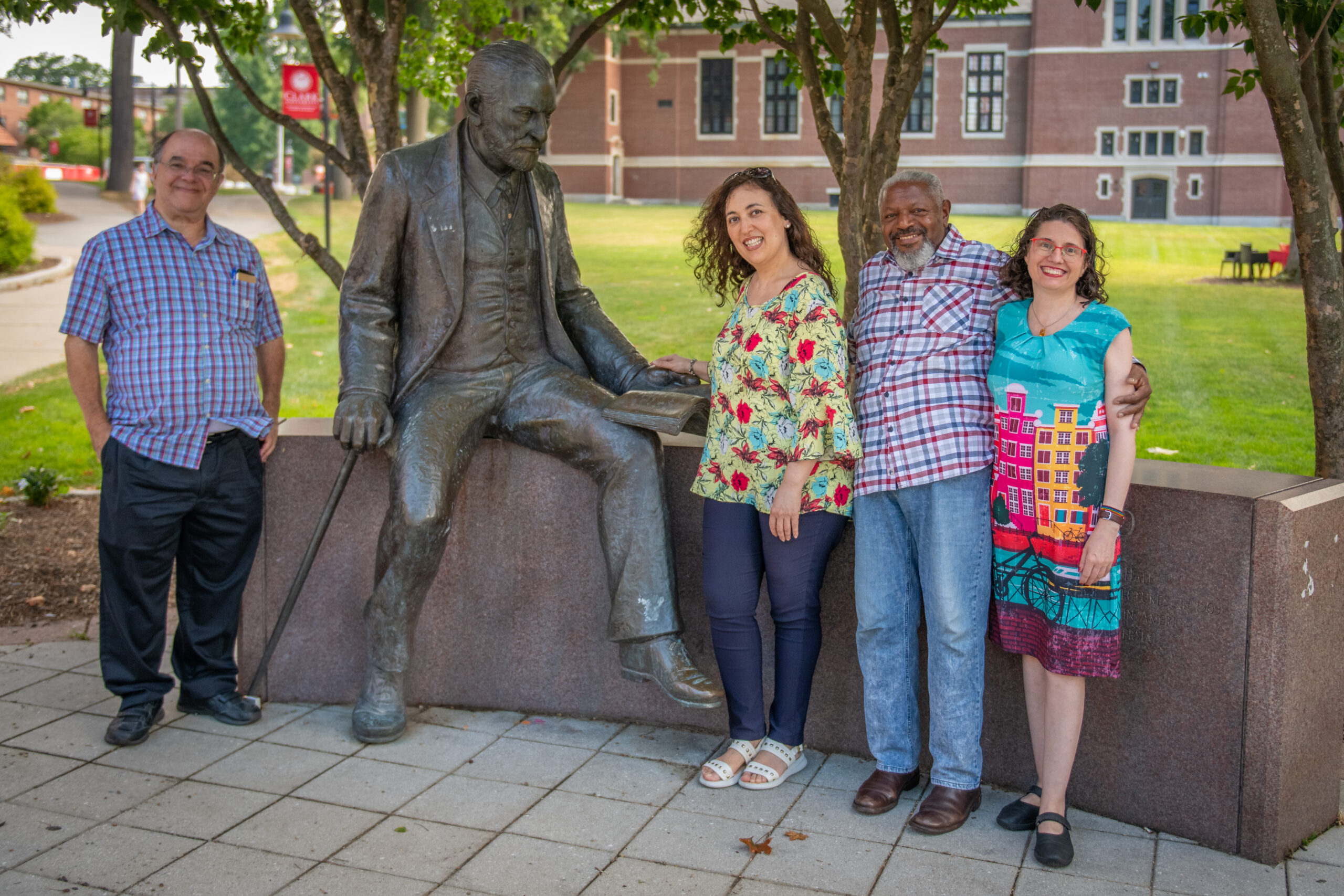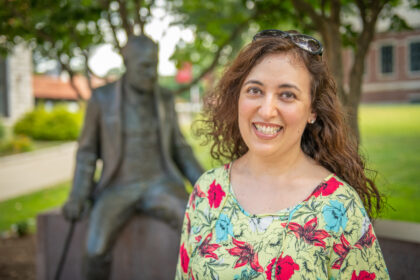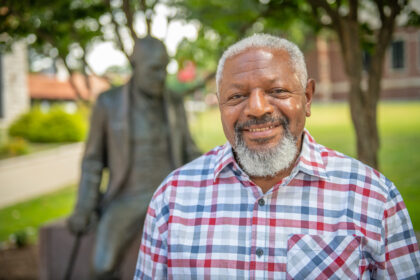‘Poetry is proof of the humanity we all share’

International poets toured the Clark campus this month and read during a bilingual event at the Worcester Public Library, an effort to cross cultural divides through written and spoken word.
Professor Belén Atienza of the Department of Language, Literature and Culture arranged for Argentinian poet and singer María Inés Iacometti and Dominican poet Juan Freddy Armando to visit Massachusetts, part of Clark’s support of the arts. Atienza led the two poets on a tour of campus and other local institutions like the Worcester Art Museum.
“This is a great opportunity for intellectual dialogue,” Iacometti says. “I want to explore the ways in which we can create cultural collaborations and reach an international audience.”
This visit marked her first time in the United States. Atienza, along with former Clark Professor Eugenio Marcano, showed Iacometti and Armando Clark’s statue of Freud. Atienza believes Iacometti is poised to become one of the great poets of her generation.

“Freud was here at Clark when he wasn’t yet ‘Freud,’” Atienza says. “María Inés is here when she is not yet María Inés.”
Iacometti is one of the founding members of Arte Poética Latinoamericana, an organization to promote poetry with ambassadors in 23 countries. Armando is known as an intellectual across Latin America and is a journalist with a weekly column about poetry. Atienza interpreted for the two during their visit.
Armando is interested in the exchange of dialogue and culture between the United States and Latin America.
“The people of the United States love culture, they love libraries, they love learning, and they are very curious. So am I and so is the Dominican Republic,” he says. “This is an opportunity to keep learning alive.”
Atienza has brought poets to campus for years with the support of the University. She strives to make her students realize poets are everyday people. Visits from international poets support that goal.
“Poets are living human beings like the students are. Students can talk to them, ask questions,” she says. “When Clark has a commitment to poetry, that’s really a commitment to being citizens of the world. If we do not commit to poetry, we are not committing to the deepest searches of the soul.”
Armando says great poetry bridges cultural divides by making people laugh and cry together.

“Poetry shows us that no matter where we live, the color of our skin, our language, all human beings share common emotions, common questions, common struggles, common sources of strength,” he says.
For Atienza, it has been a month replete with poetry readings. She and Iacometti gave a reading at the Newburyport (Mass.) Public Library earlier this month. Atienza was also the co-organizer of a historical meeting of major international poets. Thirty-six poets, three of them National Poets of the Dominican Republic, traveled to Newburyport for a reading. The group came from near and far, including Worcester, Lawrence, Boston, New York City, Spain, Puerto Rico, and Argentina.
Iacometti, Armando, and Atienza joined Worcester Poet Laureate Juan Matos, Worcester Youth Poet Laureate Adael Mejía, and other local poets on Aug. 10 for a bilingual poetry reading at the Worcester Public Library. Matos is coming to Clark in September for a reading
Iacometti calls poetry an “emergency of the soul.”
“Poetry is essential to the human being. Every person has poetry inside them,” she says. “The only difference is that some of us practice it, and others have yet to discover it.”


